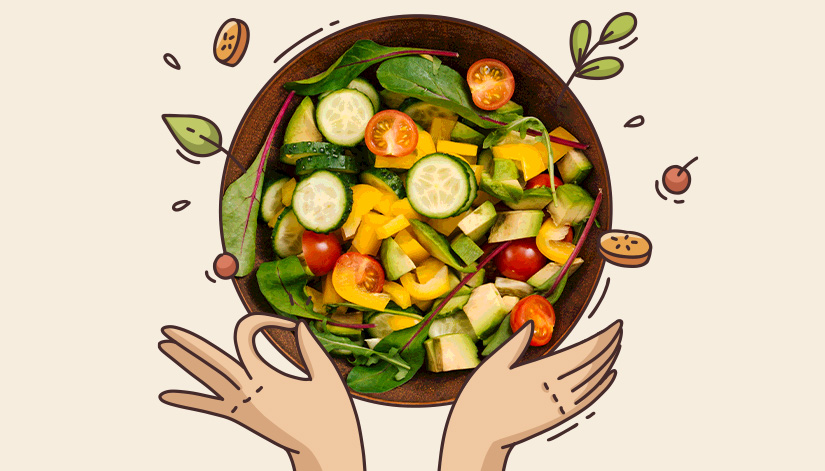Discover the synergistic health benefits of combining fasting with a vegetarian diet, from enhanced
weight management to improved longevity and reduced disease risk.
Introduction:
Fasting and following a vegetarian diet are both practices known for their health benefits, including
improved cardiovascular health, weight management, and reduced risk of chronic diseases. When
combined, these two dietary approaches can amplify each other’s benefits, providing a
comprehensive health boost. This article explores the various benefits of integrating fasting with a
vegetarian lifestyle.
What is Fasting and What Constitutes a Vegetarian Diet?
Fasting: This involves alternating cycles of eating and abstaining from food. Popular methods include
the 16/8 method, where you eat during an eight-hour window and fast for sixteen hours, and whole-
day fasts.
Vegetarian Diet: Typically excludes meat and fish, with some variations allowing dairy and eggs. It
focuses on plants for food, including vegetables, fruits, grains, nuts, and seeds.
Health Benefits of Combining Fasting with a Vegetarian Diet:
- Enhanced Weight Management
Combining fasting with a vegetarian diet can lead to more effective weight management. Fasting
helps regulate hunger hormones like ghrelin, while a vegetarian diet is generally lower in calories
and higher in dietary fiber, which promotes satiety and reduces overall calorie intake. - Improved Heart Health
Both fasting and vegetarian diets have been shown to improve heart health. This combination can
significantly lower blood pressure, reduce cholesterol levels, and decrease the risk of coronary heart
disease. Plant-based diets are rich in antioxidants and low in saturated fats, which is beneficial for
the cardiovascular system. - Increased Longevity
Studies have suggested that both fasting and adherence to a vegetarian diet are associated with
increased lifespan. This might be due to reduced oxidative stress, improved metabolic health, and
lower rates of degenerative diseases. - Reduced Risk of Chronic Diseases
The combination of fasting and a vegetarian diet can reduce the risk of developing chronic diseases
such as type 2 diabetes, cancer, and neurodegenerative diseases. Fasting increases insulin sensitivity
and enhances hormone function, while a vegetarian diet is rich in nutrients and antioxidants that
protect against cellular damage. - Better Digestive Health
Fasting gives the digestive system a break, which can help in healing and repairing the gut lining. A
vegetarian diet contributes to a healthy gut microbiome due to its high fiber content, which supports
beneficial bacteria. - Enhanced Mental Clarity and Emotional Well-being
Fasting has been associated with increased production of brain-derived neurotrophic factor (BDNF),
which supports brain health. A vegetarian diet, rich in fruits and vegetables, provides vital nutrients
that can improve mood and cognitive function. - Environmental and Ethical Benefits
A vegetarian diet reduces one’s carbon footprint, uses fewer natural resources, and is generally
considered more sustainable than a meat-based diet. When combined with fasting, which naturally
reduces food consumption, the impact is even more significant.
Tips for Successfully Combining Fasting with a Vegetarian Diet:
Plan Nutrient-Dense Meals: Ensure that your eating windows include a variety of whole
foods to meet your nutritional needs.
Stay Hydrated: Drink plenty of water, herbal teas, and other non-caloric beverages during
fasting periods.
Gradually Adjust: Start with shorter fasting intervals and gradually increase as your body
adapts.
Listen to Your Body: Monitor how your body responds and adjust your diet and fasting
schedule as needed.
Integrating fasting with a vegetarian diet can greatly enhance your health, contributing to better
weight management, reduced disease risk, and increased longevity. This combination not only
benefits personal health but also contributes to environmental sustainability, making it a powerful
choice for both individual and planetary well-being.
Combining these practices is not only a health decision but a lifestyle one that may require
adjustments and careful planning. Always consider consulting with a healthcare provider or a
dietitian to ensure that all your nutritional needs are met while engaging in combined dietary
practices.

